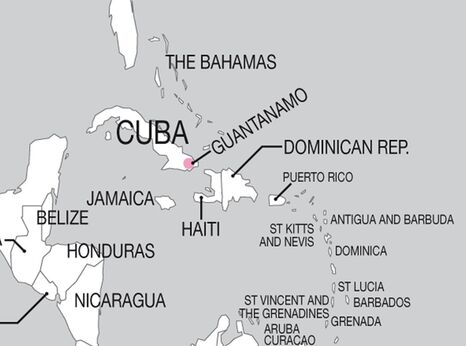Cuba: Release all peaceful protestors

On 11 July people took to the streets across Cuba to peacefully protest over the economy, shortages of medicines, the response to COVID-19, and historically harsh restrictions on freedom of expression and assembly.
As of 21 July, potentially hundreds of people are still being detained following the protests, according to evolving lists being compiled by NGO Cubalex and Prisoners Defenders. On 16 July, the UN High Commissioner on Human Rights called on Cuba to release those detained for peacefully exercising their right to protest. Michelle Bachelet expressed concern over the large number of people detained and called on the authorities to release those detained for peacefully exercising their right to protest.
Since 16 July, Amnesty International has spoken to multiple relatives of families detained in the context of the protests. They told the organization that the authorities had not informed them of the whereabouts of their relatives. In one case, the family had not been informed of the relative’s whereabouts for 96 hours. In another case, a family member indicated they had not been able to locate their relative for 6 days. In none of the cases had the relatives received a phone call from detainees.
On 14 July, representatives from the Prosecutor General’s Office and the Ministry of Interior said on state television that they were investigating individual responsibility for the organization of the protests and the “crimes” committed during the protests. That same day, the Committee to Protect Journalists called on authorities to immediately and unconditionally release all journalists detained during the protests. It said authorities had “intermittently blocked dozens of reporters from leaving their homes” and called on the government to allow the press to cover the protests freely and to stop disrupting internet in the country.
On 20 July, on Canal Caribe, a state-controlled station, representatives of the Prosecutor General’s Office and the Ministry of Interior denied that families were being refused information about those detained on 11 July. However, no representatives of families or other alternative voice was present during the program. Granma, Cuba’s state newspaper, also tweeted that there were no missing persons, and classified Sunday’s protests as “riots.”
The rights of detainees to communicate with the outside world and to receive visits are fundamental safeguards against human rights violations, including torture or other ill-treatment and enforced disappearance. Furthermore, Cuba is a party to the International Convention for the Protection of All Persons from Enforced Disappearance. According to the Convention, a refusal to acknowledge the deprivation of liberty or to disclose the fate or whereabouts of a person following their detention, can amount to an enforced disappearance, a crime under international law.
The Cuban authorities have long used an array of provisions of the Penal Code to stifle dissent and punish those critical of the government. Commonly used provisions include contempt of a public official (desacato), resistance to public officials carrying out their duties (resistencia) and public disorder (desórdenes públicos).
Network data from Netblocks has reported that several social media and communications platforms, including Whatsapp, Facebook, and Instagram were disrupted in Cuba from 12 July, making communication within and with the country difficult.